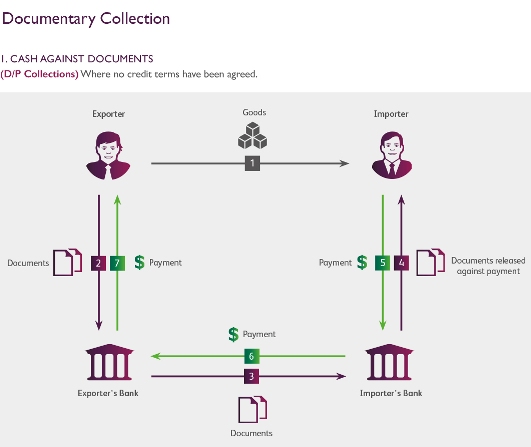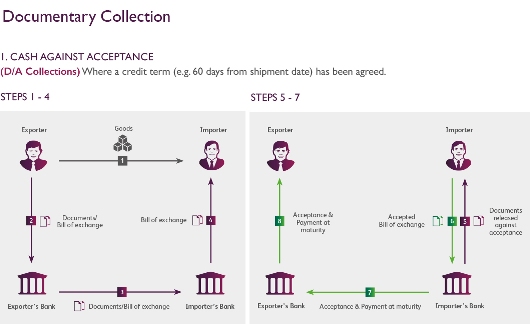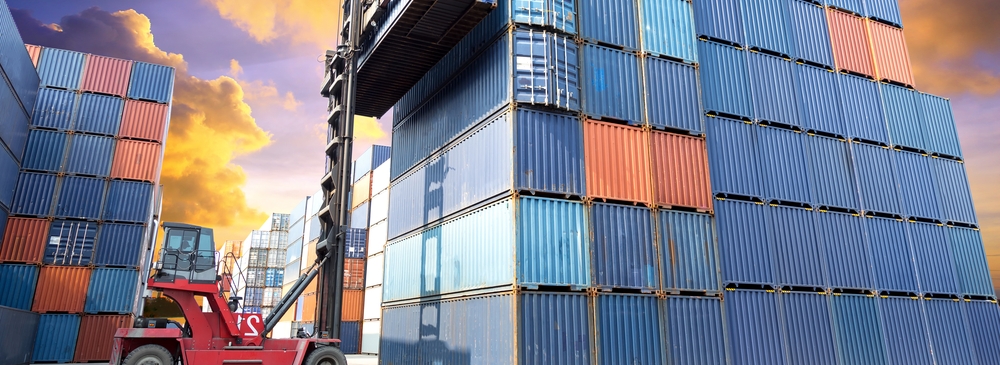Make it Easy with Documentary Collections
Collections do not provide any guarantee of payment, and are therefore more widely used where the Importer and Exporter have established a good trading relationship. The Importer agrees to pay for goods only upon receipt of documents evidencing the shipment of the goods by the Exporter.
It is important to note that the Importer’s bank is primarily responsible to the Exporter for the handling of the documents even though the Exporter is not a customer. Collections are subject to The Uniform Rules for Collections issued by the International Chamber of Commerce.
How does the process work?
The Exporter sends the documents through his bank to the Importer’s bank, which then collects the proceeds on behalf of the Exporter. The documents can be released to the Importer in either of the following ways:
- Cash against documents (D/P Collections) -Where no credit terms have been agreed, i.e. immediate payment by the Importer.

- Cash against acceptance (D/A Collections) - Where a credit term (e.g. 60 days from shipment date) has been agreed. This is normally evidenced by the Importer accepting a Bill of Exchange (B/E) drawn on them by the Exporter or by issuing a Promissory Note in favour of the Exporter.

- Benefits
- Restrictions/Disadvantages





